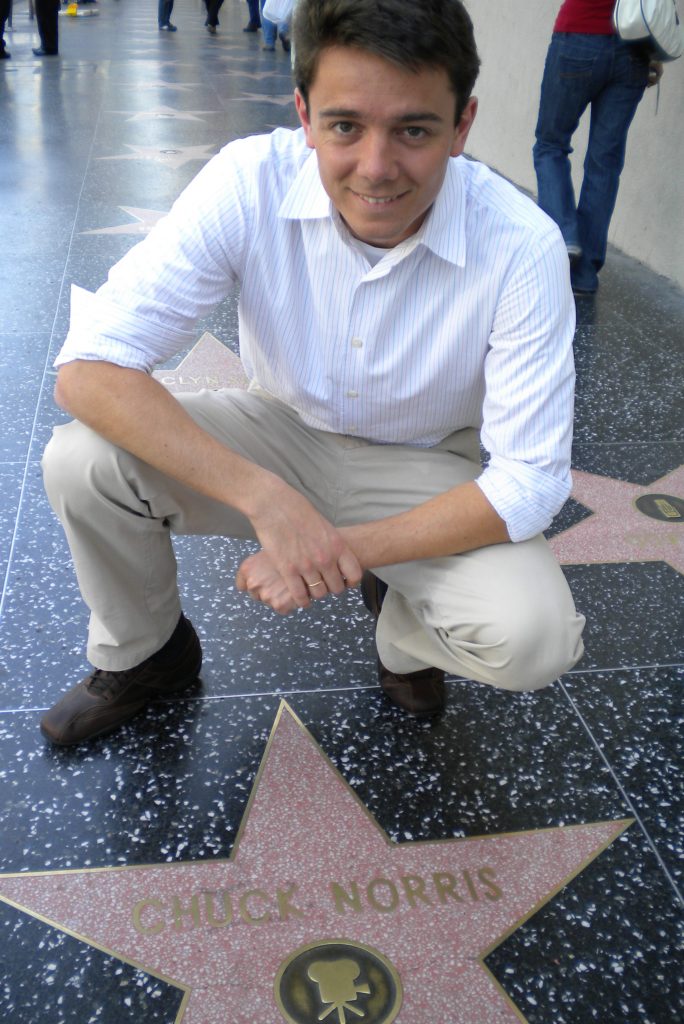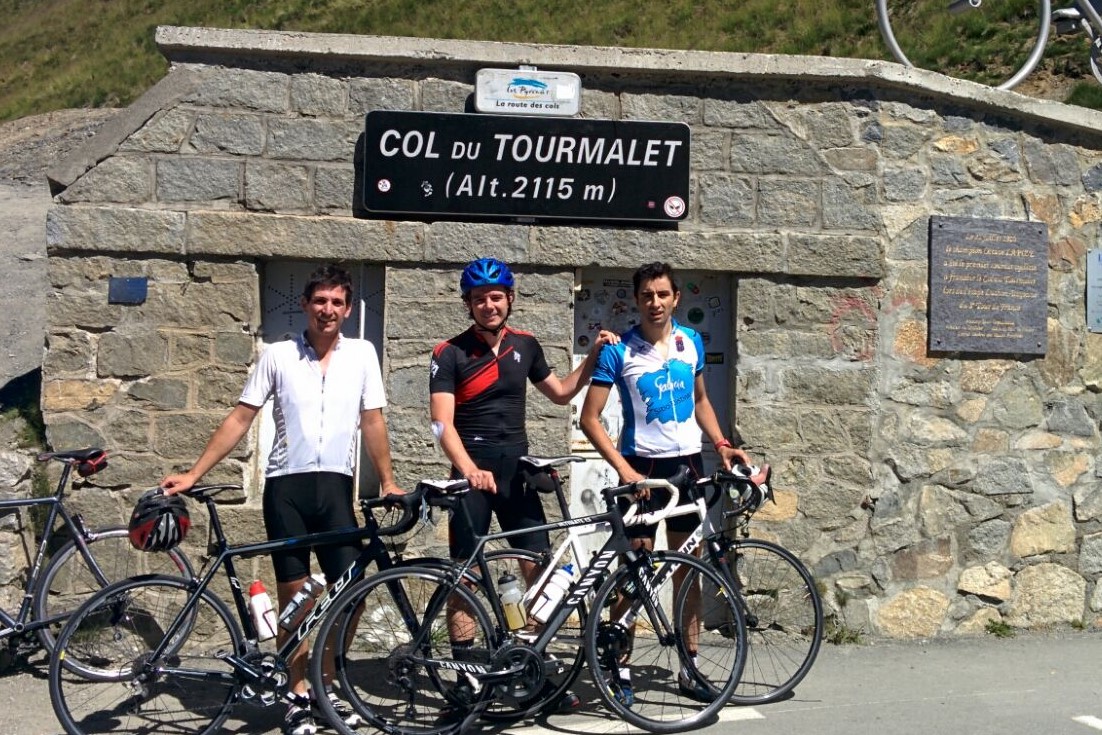Iñigo Gallo is an Assistant Professor of Marketing at IESE Business School. He received his Ph.D. degree in Management from the Anderson School of Management, UCLA, and holds an MBA from IESE and an undergraduate degree in Business and Economics from the University of Barcelona. Prior to academia, Iñigo worked as a management consultant.
In this post, he shares some insights from his research on consumer behaviour in relation to experiential purchases and gives advice to those considering a career in marketing.
Could you tell us about what made you decide to go into academia and choose the field of Marketing?
Well, I never thought about becoming an academic. After college, I worked in consulting for three years and then I came to do the MBA here. I was looking for jobs in industry, specifically in sales but during the second year I had conversations with two professors and they asked me whether I would consider getting a Ph.D. and potentially coming back to IESE to work.
At first, I said no. Then I thought about it, there were one or two professors who I would admire and think “wow, this person is leading a good life all around”, in terms of being a complete professional – working with students and teaching on one side, and working with companies and learning on the other. The teaching aspect is something a lot of people feel some attraction to. It was obvious to me that some of those professors were able to impact the students beyond the classroom or the technical and the academic aspects. Some of the professors that I admire the most also work on different projects with companies.
This made me rethink my response to the professors and we agreed on giving it a shot for a year. I taught a few sessions in order to experience the classroom, and worked on research a little bit. I had to retake the GMAT, and applied to several Ph.D. programs. I got accepted into UCLA and there I went.
Why do you think they approached you specifically and not the other students?
They approached several of us. Now that I am on “the other side” I wonder this myself. I don’t know… during the MBA I worked hard and tried to do my best…
Were you a very good student?
Haha, let’s put it this way, I worked hard… I think they look for people who communicate well, have a passion for teaching, for working with others, in this case in the class environment. I think they also looked for people with attitudes and values that are aligned with the mission of the school.
What was your Ph.D. on? What was the topic?
Consumer Behaviour – that is, something between Psychology and Marketing. Getting a Ph.D. in a business school in the field of marketing can mean two things – one is what they call quantitative, the other is called behavioural. The quant people do a lot of economics, econometrics, and they try to put microeconomic models behind the behaviour of companies and consumers.
The other side of academic marketing, the one I took, is called consumer behavior. There you try to look for causality behind the decisions, not only the effect. Quantitative marketing will look at store data and ask “does a price promotion impact sales?” Consumer behaviour will observe the effect and try to understand why it is happening, what psychological processes or aspects of the decision-making process it touches.
The data that we use normally comes from what we describe as the “lab”. These are online or offline experiments we run with consumers. Most of the time these are surveys, so you manipulate what you think is going to have an impact – the colour of the brochure for instance, or the framing of the advertising. You create different conditions, different versions of the stimuli you are using, and you predict the impact of that on the decision that you are measuring.
You are very focused on the field of experiential marketing. In particular you did a paper on the process behind purchasing material goods versus experiences. Can you tell us more?
During my Ph.D, I realized most of the research in marketing has been focused on material purchases. I realized most academic marketing has overlooked or just didn’t have time to study experiential purchases, which are intangible: what you buy is an event or a series of events that you live through like a holiday, a movie, a restaurant meal, a gym subscription. I found it interesting enough and it was something that hadn’t been worked on too much, so there was room for research. The initial hypothesis was and continues to be that because the nature of the good is so different – the key aspect being its intangibility – the decision making process is also going to be different. So, my big research question is: is the way consumers analyze, evaluate, and decide over experiential purchases different from the way they analyze, evaluate, and decide over material objects?
And what did you find?
Well, it is a very big question, and it is still open. I am convinced that there are important differences. One paper we have published recently specifically makes the point that the purchase of experiences is much more intuitive than analytic. We use both systems of information processing for both types of purchases, experiential and material, but we find that intuition is more important than analysis when we buy experiences.
In another paper that we hope to publish soon, we try to show that evaluation of experience is very similar to a narrative. Normally there is more uncertainty around experiences than around products, less information to play with in the mind of the consumer. This may make consumers evaluate the experience in the form of a story: with a beginning, a middle and an end. And we think this has specific consequences on how companies should promote and advertise experiences versus products.
These are the two differences we were able to document. There are others, for instance, how price influences the decision. Although the data that we have is not conclusive, I believe price may serve as a proxy for quality for experiences more than it does for products. Another difference we see is that word of mouth matters more for experiential than for material purchases. So the list is long.

Professor Gallo during his Ph.D. in LA
Well, I came across your Twitter feed and saw that you are quite active. Anything in particular that you found interesting recently?
In terms of campaigns, I have a particular interest in non-traditional campaigns because it is closer to what I research and to the class that I teach in the second year.
There’s one that I really like by Doritos called “Crash the Superbowl”. A couple of months before the Superbowl, Doritos would open a website where consumers can upload their self-produced 30 second ads. Then there is a consumer vote, leading to the final five. Then I believe Doritos selects two out of those five, and releases them on the Superbowl.
It does a pretty good job at capturing interest of consumers, getting them to think for your brand and about your brand. It is something that has been getting a lot of traction for the past ten years but Doritos just announced this is the last year they will do it.
Thanks for the pointer, I will check it out! As you know I am in your class and what I am hearing a lot is that the nature of marketing is changing so much that what used to work in the past will not work in the future. What advice would you give to someone considering marketing as a career?
A little disclaimer first – a lot of people claim that traditional marketing is dead. I don’t know if it is true, but what I do know is that it doesn’t really matter. What matters is that there are definitely significant changes in the way consumers behave and what they expect. A lot of it has to do with the fact that they are almost always connected through their devices, which opens up many possibilities for sales and marketing.
One thing that I make sure students are aware of is that even if you don’t end up in a marketing or sales position, you need to be proficient in the digital realm – basic things like running an online campaign on Google or Facebook, dealing with Google analytics, understanding some of the key metrics, communicating through Youtube, what it means to have healthy social media… Those things are increasingly important for consumers, and therefore should be increasingly important for organizations. Maybe you won’t be a great programmer or developer, but you need to be familiar with the basics.
Now back to your question: I think my one word of advice would be speed. My sense is that you need to be very fast at everything: coming up with products, with campaigns, with technology, with trying things and learning and improving; as an individual; as a brand or organization; in marketing and elsewhere!
Do you feel that the digital marketing is sometimes disconnected from sales?
We need to distinguish what Google calls performance marketing from brand marketing. Performance marketing can be search, display, or even Facebook ads with a specific promotion: this is naturally connected to sales. But when you move into brand digital marketing, well yes there can some disconnect. While I think it has improved compared to five years ago, at first there was a big fever around engagement, especially on social media. Engagement was supposed to be THE goal, how it would persuade consumers and ultimately obtain sales. People can get carried away by new tools and some specific successes that were very noisy in terms of attention. However, the bottom-line is: are my social media efforts connected to consumer behavior that ultimately matters?
That is why I think that coming out of the MBA it is fantastic to work in sales for a few years. Transitioning from sales to marketing is natural and achievable. But if you go directly to marketing without having a sensitivity to sales, the marketing you will do might be a little far away from the reality of the consumer.
What are the trends in marketing that you foresee?
I believe there are inherent risks in experiential marketing that some companies are currently overlooking that could make way for the next big thing. The fundamental one is that more brands are describing their products in subjective terms. The moment you focus your communication on emotions, the social aspect around the product, or how much a part of yourself this thing will become, you are making it more subjective and less attached to specific features of your product. Moving to a subjective space can be good and persuasive but it has two potential problems. First, the risk of under-delivering to the consumer. The second, it makes room for other people to do the same. The field of intangible attributes is a playground where other people can fight. Or even worse, you make room for “no-nonsense” competitors. Someone who comes to the consumer and says: “you want coffee, or a car, or a razor? Well here’s what you need for a very competitive price, with no-nonsense about emotions, happiness, or experiences.”
What do you do in your spare time?
I try to exercise and spend time with other people. I come from a large family, so keeping up with them is normally a big part of my week. And being from Barcelona I also have a lot of school and college friends here to see and keep up with.

Professor Gallo playing with the student soccer team
I thank Professor Gallo for his time.



